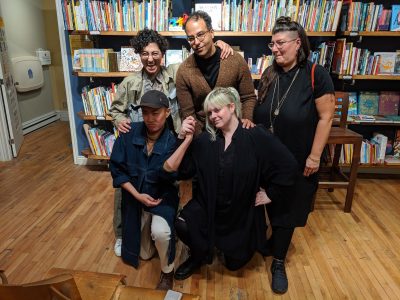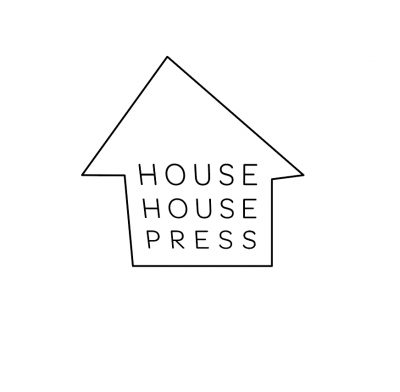
Founders
David Bradford is an interdisciplinary poet based in Tio’tia:ke/Montréal, on the unceded territory of the Kanien’kehá:ka Nation. He is the author of several chapbooks, including Call Out (knife | fork | book, 2017), Nell Zink Is Damn Free (Blank Cheque Press, 2017), and The Plot (House House Press, 2018). His work has appeared in Vallum, Prairie Fire, Poetry Is Dead, The Capilano Review, Carte Blanche and elsewhere. David’s first book, Dream of No One but Myself, is forthcoming from Brick Books.
Anahita Jamali Rad was born in Iran and currently based in Tio’tia:ke on the traditional territory of the Kanien’kehá:ka. Jamali Rad’s first book of poetry, for love and autonomy (2016), and forthcoming book, Still are both published by Talonbooks.
Tell us a bit about your press. How did you start? Who are your influences, in Canada and beyond? What is your mission?
We started the press because both of us had grown a bit weary with mainstream poetry publishing and wanted to read more books that did not fit the mold of what was being put out by book publishers and magazines, either because of their content, form, or both. We wanted more books that made us excited about poetry, and we wanted other people to be able to read books like that, too, and for the people who write them to be able to share their work with their respective audiences.
What about small press publishing is particularly exciting to you right now?
Small press publishing is pretty ideal for tackling the kinds of projects we’ve been trying to foster: small, commissioned, patiently developed, weird. The flexibility and lack of industry/bottom-line accountability beyond each other and our communities means we can take our time, and bring it all together and out into the world when it’s really ready and good.
How does your press work to engage with your immediate literary community, and community at large?
We’ve been working to make a room, and slowly grow a room, we didn’t quite feel we had for ourselves before—for queer, BIPOC, and arts folx with unusual, radical sensibilities, aesthetically, politically, and otherwise, as poetry practitioners. Personally, we’ve spent a lot more time in front of other people’s audience, or working our way into journals that don’t really feature work like ours. We wanted a dedicated space for those differences to encounter, encourage, and study each other. Our readers and writers tell us they’re getting that from us, which we’re really proud of.
Tell us about three of your publications. What makes them special, needed, and/or unique?
Each season of releases features three chapbooks. This season we have Lyfe in a Bottle Tree Bottle by sidony o’neal, Liquidity by Erin Robinsong, and Automatic Object Lessons by Helen Chau Bradley.
We think each of them is needed at this moment in its own way. Helen Chau Bradley’s piece is able to expose insidious and oppressive structures of societal normativities through its use of repetitive and deceptively simple phrases from a machine language-learning app. sidony o’neal also addresses machine analytics and societal structures. o’neal’s text, a pseudo-narrative that encompasses two forms of parallel record-keeping, demonstrates shifts in perspective and different ways of being in a world. Erin Robinsong’s book examines the relationships of our bodies to economies, to land, and to the environment. In the midst of overlapping wonderment and devastation, it contends with the poet’s navigation of the social and informational ways those relationships are shaped, frustrated, and sustained.
How have the current multiple global crises impacted your work with the press?
It’s certainly forced us to slow down our latest season of releases. But it’s also given us the space and time to rethink how we make books, how we bring those books to people, how we want to be out here as publishers.
For instance, we had a weekly Instagram reading series this Spring in collaboration with Slow Wave Small Projects, an intensive feminist, activist, and land-based learning experience. The readings, a number of which are still up on our IG, featured a mix of our authors and other writers we admire. It was pretty striking how energizing it was to come together every week for a few months, amidst everything. Even if it was just 30 or so of us, on any given Thursday—doing something small, but both routine and out of our day-to-day, listening closely for half an hour. For one, it impacted how we think about community a bit, and maybe ate into some ambivalence we can sometimes find ourselves feeling in that regard as of late. Small but precise and good can feel pretty right.
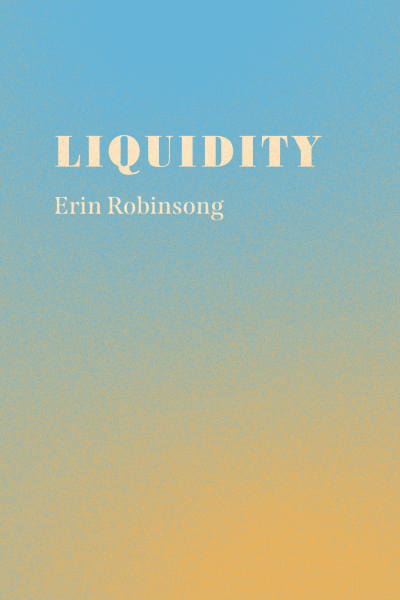
Liquidity
Erin Robinsong
2020
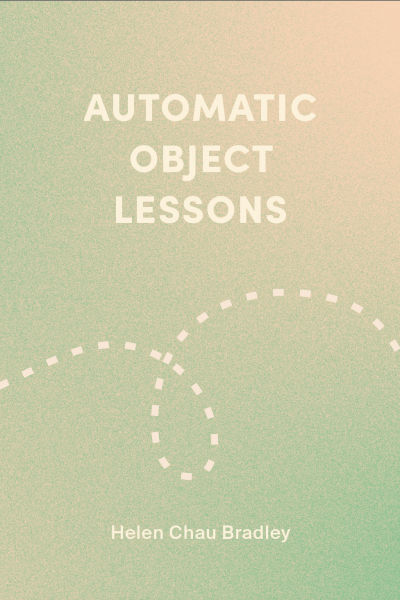
Automatic Object Lessons
Helen Chau Bradley
2020
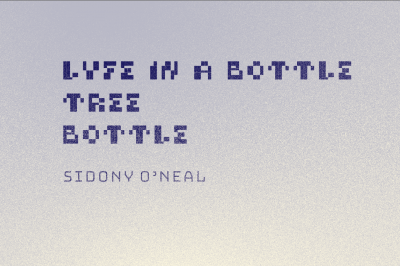
Lyfe in a Bottle Tree Bottle
sidony o’neal
2020
